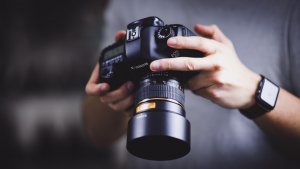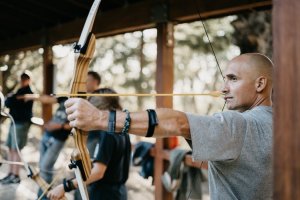Whether you’re a hobbyist photographer, an enthusiastic golfer, or a skilled hunter, an almost must have in your technological repertoire for easy and convenience is a well-built, high-quality rangefinder. But what exactly are the differences between what uses that are different do they have throughout their various hobbies, and rangefinders?
Which category do you fall under?
PHOTOGRAPHY

For photographers, well, this is probably the wrong post. Chances are you’re looking for a affordable, versatile rangefinder camera – instead of only a stand-alone rangefinder. Rangefinder cameras are part of the essence of professional photography, particularly for photographers who feel the need to work with the picture. Lens-mounted rangefinders exist also on earth of photography, but nothing really beats on the price and versatility of a fine, reliable one.
HUNTERS
For hunters, a rangefinder must be streamlined, easy to handle with a single hand, and as accurate as possible. You usually just get one shot at your quarry, so making sure that shot counts mean making sure your hardware is up to spec.
So, for rifle-wielding hunters, what you’re usually looking for is a rangefinder specialized towards long-distances, and nailing the exact space of your target – that often means looking towards the higher priced laser range finders to make sure you’re getting an accurate reading from far away.
Another thing about rangefinders that many hunters have to watch out for is equilibrium. A clunky, powerful rangefinder will help you more than one that easy shifts in position or can’t keep steady.
But a close second, or even comparison to the occupation of a rifle-using hunter, is an archer.
ARCHERS

For archers, you’re looking for a rangefinder specialized in being not heavy. Archery is comparable to golf because rangefinders are to get the right shot and device, but for getting the right space. An arrow travels in a wide arc when compared to the route of a bullet, so a reliance on rangefinders can be negative – but they very useful for a hunter who needs to make a precise draw of the arrow.
But an arrow doesn’t compare into a golf ball’s arc, which takes talent and practice to get right. An archer can plan their arrow’s route to the last second before letting go – in golf, the ball is hit, mainly in an uncontrolled manner.
GOLFERS
For golfers, skill means knowing where the ball lands before you decide your team, but understanding just how much you’ve got to aim can make a huge difference. Rangefinders in golf aren’t crucial for skill or precision, but they do make a difference in time spent preparation each hit – an important detail for many who feel that golf is only becoming too rancid, each occasion taking more every year.
So what does that mean for you, golfer, the photographer, hunter or archer?
Design
It comes down to some question of inclination, of course, but between both kinds of rogues, there exist a few hybrid variations, and a myriad of products that are specialized.
Magnification
Clearly, a more significant trait in long distance rifle-hunting, rangefinders with strong magnification are useful in ensuring you realize exactly what you’re hitting. Affordable rangefinders will get you about 4x magnification, which suffices without a difficulty for most golfers and archers.
Range
Again an important aspect to rangefinders is their, well, range. It’s not easy to judge distances within 200 yards of ground, and anything past that can mean a serious fall in a bullet’s arc, meaning the further you shoot, the more you must consider reparation. Most rangefinders for hunters include sophisticated fall range guidelines, so you have an idea of just how much your projectile will be sinking. Some high-end rangefinders remain reliant upward to 1,500, 1,300 and even 1,700 yards – do n’t pack anywhere near that much range remaining to reliant at about 500 yards Laser range finders will also be in a different league in this one, so assess each model to see the laser range finder’s specs.
Screen
Deciding a rangefinder is about putting together a list of priorities. Rangefinders have pros and cons the higher the price tag. Remain within your means – even in case a rangefinder appears just a few bucks from your reach, but packs a ton more features, and stick to your own funding, chances are these are features you can do without, while those few bucks are more important. Depending on what your hobby is, your needs will be quite distinct; maybe you’re looking for an associated piece to your bow, where case you can’t go overly hefty – or you’d enjoy something to hunt with, so you’ll need an excellent variety – possibly a laser range finder will help also. Maybe you’re what you’re looking for doesn’t need to have loads of range or a waterproof casing – or maybe you’re a hobbyist sniper, looking for a rough rangefinder that stays steady regardless of what, and a golfer.

